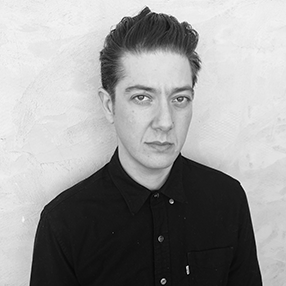The Centaur
First they called me “it,” and then, ignorant of how my people
use this word, they mashed up the meager nouns
they had for gender and called me “the goy,” and said
to not be one or the other was to be nothing.
It ate the grass it was shoved in, knelt at salt licks.
It took the barbs and kicks and crushed them into
fur and leather. Oiled and burnished, it made those
halves into one galloping body. Horse and rider.
The centaur endured the school-day, cruel gray rag, filth-
stiffened. The boys and girls who fit so easily in their costumes
looked like stick figures, crude and two dimensional.
Dante already knew, it read later. In The Inferno, in the seventh
circle of hell, centaurs guard the river Phlegethon, one of Hades’
five rivers. Phlegethon: river of fire, river of boiling blood,
which boils forever the souls of those who commit violence
against their neighbors. Centaurs guard the edges, shooting
arrows at any of these sinners who try to move to the shallows.
When sometimes I wish I’d had a boyhood, I remember those
days instead, my four muscled legs. I was seven feet tall then,
riding myself, carrying myself. A centaur is never lonely.
Copyright © 2024 by Miller Oberman. Originally published in Poem-a-Day on April 9, 2024, by the Academy of American Poets.
“Writing is a kind of time travel for me; and, in this poem, I’m able to return to and reconsider moments from my childhood. One of the most common misconceptions about trans people is that we (all) ‘were’ one thing before ‘becoming’ another. For me, this can feel lonely and ghostly, as if those around me saw a person who never existed to me—a past for others that I never experienced myself. ‘The Centaur’ considers the failure of language for my contemporaries in fourth grade. As the only trans child in my school, as far as I know, and one of very few Jews, I found it (almost) funny that they used ‘goy’ as a portmanteau of ‘girl’ and ‘boy,’ a word I knew as a sometimes derogatory term for a non-Jew. For what I really was, neither I nor they had any language, and so I would often see myself as other than human.”
—Miller Oberman

